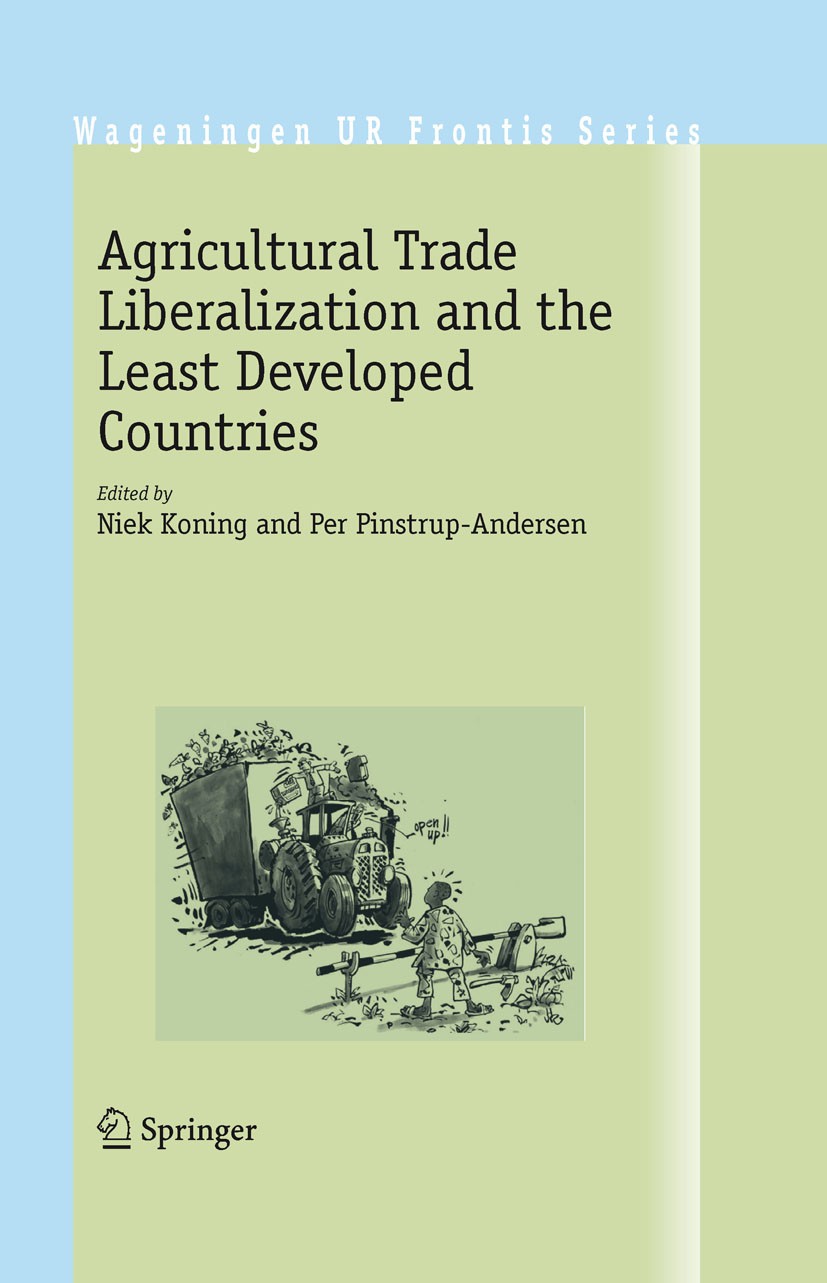| 期刊全称 | Agricultural Trade Liberalization and the Least Developed Countries | | 影响因子2023 | Niek Koning,Per Pinstrup-Andersen | | 视频video | http://file.papertrans.cn/152/151618/151618.mp4 | | 发行地址 | First and only book on the subject.Addresses a very important and timely issue.The authors are world renowned experts on the subject | | 学科分类 | Wageningen UR Frontis Series | | 图书封面 |  | | 影响因子 | .Although the current round of international trade negotiations was called a ‘Development Round’, very little was accomplished before the negotiations stalled in mid-2006. Developing countries as a group stand to gain very substantially from trade reform in agricultural commodities. It is less clear how the 50 countries identified by the United Nations as the ‘Least Developed Countries’ (LDCs), which have been subject to special consideration in international trade negotiations, would fare. Would they lose their preferential trade access to the OECD markets and, if so, would these losses exceed the potential gains from liberalized trade? Or would low-income countries that currently receive high prices for commodities such as sugar in some OECD-country markets be out-competed by countries such as Brazil in a liberalized market? More generally, would any benefits from liberalized agricultural trade be captured by middle-income countries with good domestic infrastructure and well-functioning markets, leaving few or no economic benefits to the LDCs? How should the LDCs prepare for multilateral reform of agricultural trade, and should they take policy action now in response to the conti | | Pindex | Conference proceedings Apr 20071st edition |
The information of publication is updating

|
|
 |Archiver|手机版|小黑屋|
派博传思国际
( 京公网安备110108008328)
GMT+8, 2026-1-16 22:34
|Archiver|手机版|小黑屋|
派博传思国际
( 京公网安备110108008328)
GMT+8, 2026-1-16 22:34


